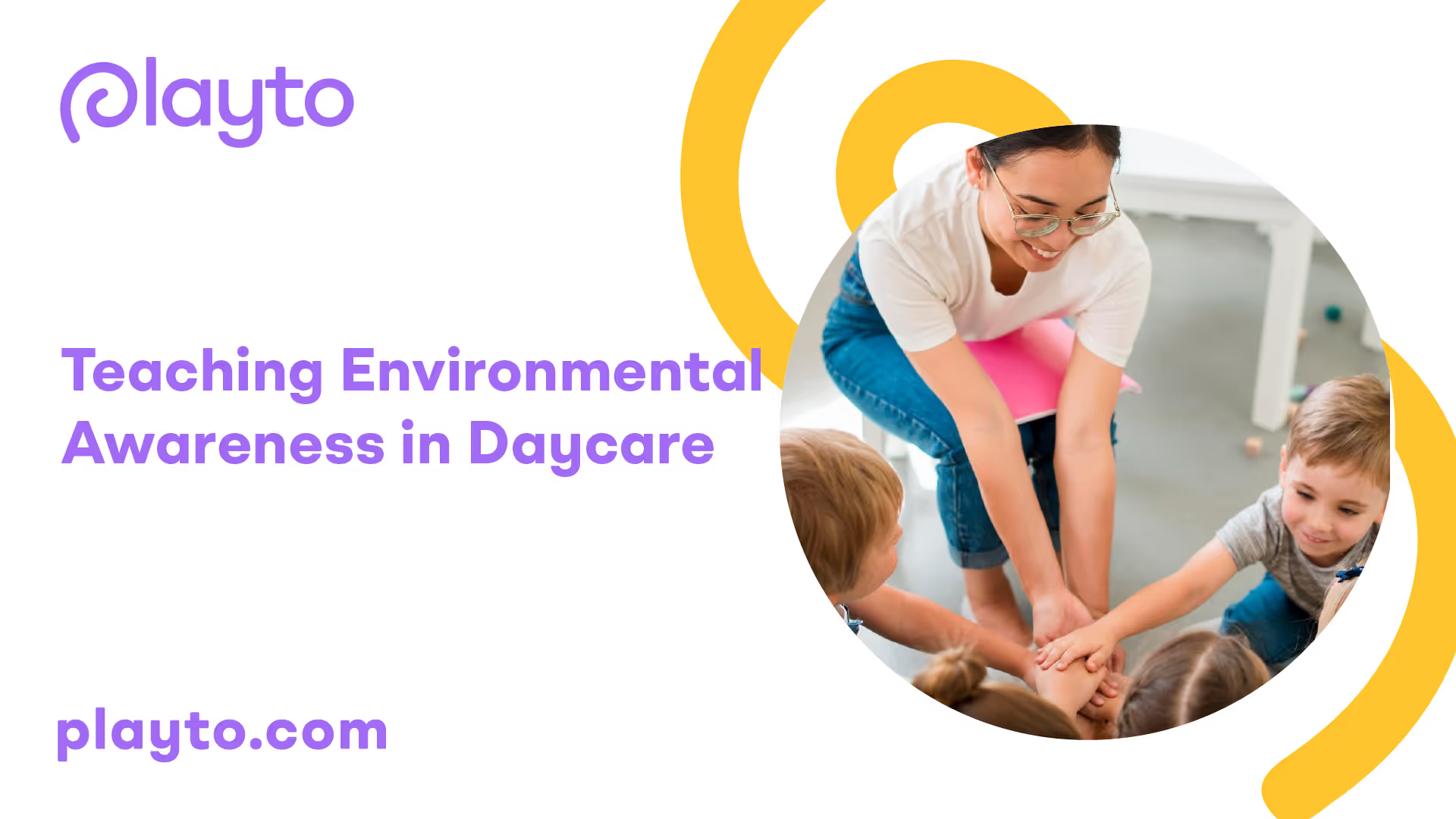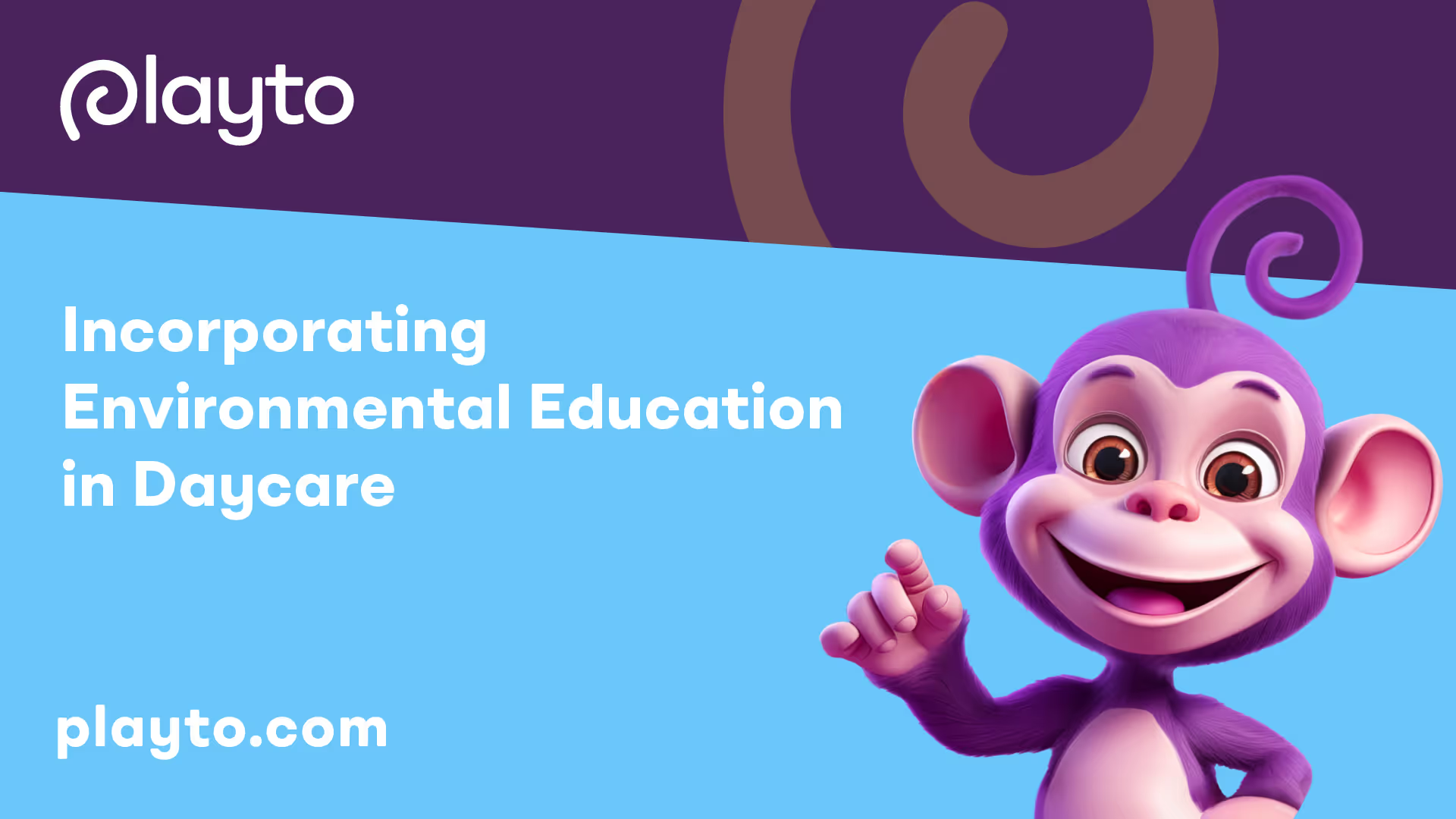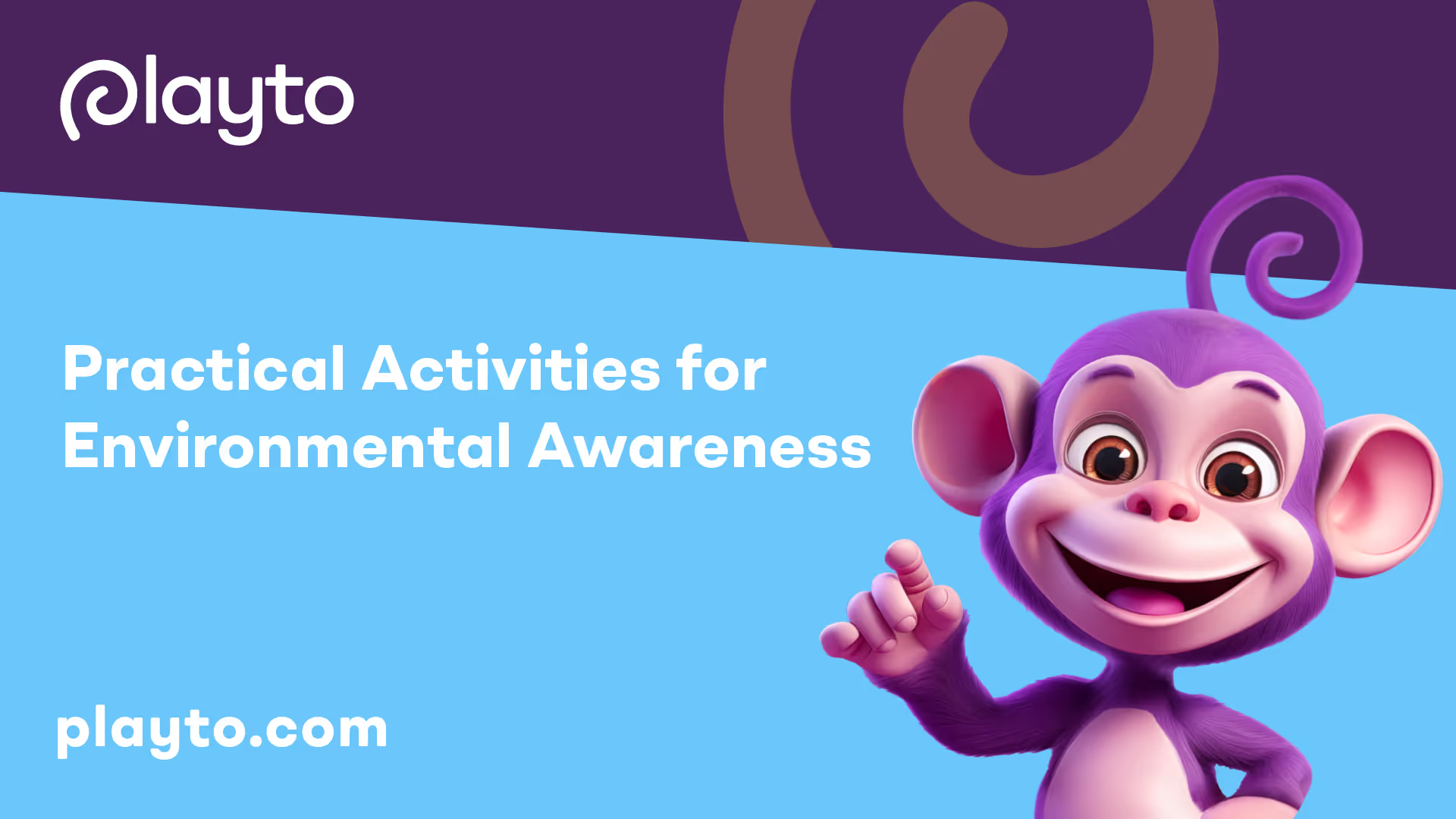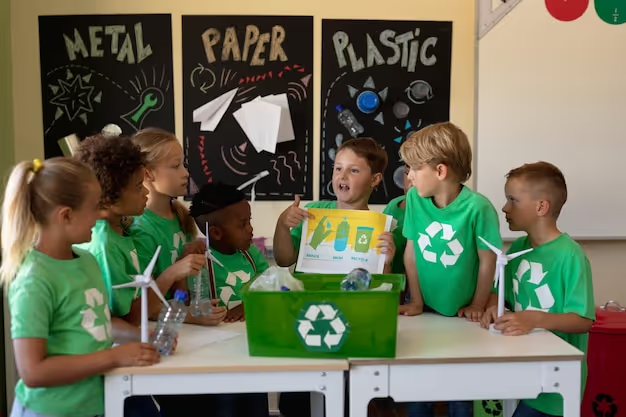
Understanding Sustainability in Education
To effectively teach environmental awareness in daycare settings, it is crucial to have a clear understanding of sustainability and its importance. This section will explore the definition of sustainability and highlight the significance of teaching sustainability to young children.
Definition of Sustainability
Sustainability is the ability to meet current needs without compromising the ability of future generations to meet their own needs. It encompasses a holistic approach to addressing environmental, social, and economic challenges in a way that supports long-term well-being and resilience.
In the context of education, sustainability is about fostering an understanding of the interconnectedness between human actions and the environment. It involves promoting responsible behaviors that protect and preserve natural resources, reduce waste, and promote environmental stewardship.
Importance of Teaching Sustainability
Teaching sustainability in daycare settings is of utmost importance as it empowers young children to become environmentally conscious individuals who are equipped to make informed decisions about their actions and their impact on the planet. By introducing sustainability concepts at an early age, children develop a sense of environmental responsibility that can positively influence their behavior and choices in the future.
Teaching sustainability in daycare provides children with the knowledge and skills they need to become active participants in creating a more sustainable world. It helps them develop an understanding of the importance of conserving resources, reducing waste, and caring for the environment. By instilling these values from an early age, daycare educators play a vital role in shaping environmentally conscious citizens.
Moreover, integrating sustainability concepts into daycare education aligns with the growing global concern for environmental issues. As society increasingly recognizes the need for sustainable practices, teaching sustainability equips children with the tools to contribute to a more sustainable future.
By emphasizing sustainability in daycare education, children gain a deeper understanding of their role in protecting the environment. They learn about the interconnectedness of ecosystems, the impact of human actions on the environment, and the importance of preserving natural resources. These lessons foster a sense of responsibility and empower children to make environmentally conscious choices.
Incorporating sustainability education in daycare sets the foundation for lifelong environmental awareness and action. It equips children with the knowledge and skills they need to become stewards of the environment, actively contributing to a more sustainable and resilient world.
In the next section, we will explore practical activities that can be implemented to promote environmental awareness and sustainability in daycare settings.

Incorporating Environmental Education in Daycare
When it comes to teaching environmental awareness in daycare, incorporating environmental education into the curriculum can have significant and long-lasting effects on children's values and behavior towards the natural world. It equips them with the knowledge and skills necessary to become ecologically literate individuals who can make informed decisions and take action for the well-being of the planet [2].
Benefits of Environmental Education
Environmental education within daycare programs offers numerous benefits for children. It enhances critical thinking skills, fosters an understanding of nature and the environment, and develops empathy and respect for other living beings. By engaging in hands-on activities and learning experiences focused on environmental awareness, children develop a deep connection with the natural world and gain a sense of responsibility towards its conservation. Furthermore, environmental education promotes sustainable practices, encouraging responsible choices that minimize ecological footprints.
Impact on Children's Values
Incorporating environmental education into daycare programs can shape children's values and attitudes towards the environment from an early age. By learning about the importance of conserving resources, reducing waste, and living sustainably, children develop an appreciation for the planet and a sense of responsibility towards its care. This early exposure to environmental concepts and practices lays the foundation for a lifelong commitment to sustainability. It also encourages children to become advocates for the environment, empowering them to make positive changes in their communities [2].
To effectively incorporate environmental education into daycare, educators can integrate sustainability concepts and practices into various aspects of the curriculum. This may include teaching children about recycling, reducing waste, conserving energy, and engaging in nature-based activities. By providing hands-on experiences, children develop a firsthand understanding of environmental issues and learn how their actions can make a difference.
By involving parents, guardians, and the wider community in environmental education efforts, daycare programs can enhance children's learning experiences and reinforce the importance of sustainability. This creates a strong network of support for environmental education that extends beyond the classroom. Collaborative efforts between daycare centers, families, and the community can create a powerful environment for fostering environmental awareness and instilling a sense of responsibility towards the planet.
In conclusion, incorporating environmental education into daycare programs is crucial for nurturing children's environmental awareness and values. By teaching them about sustainability and engaging them in hands-on activities, children develop a deep connection with the natural world and learn how to make responsible choices that benefit both themselves and the environment. Through collaborative efforts involving parents and the wider community, daycare programs can create a lasting impact on children's environmental consciousness.

Practical Activities for Environmental Awareness
To cultivate environmental awareness in daycare settings, engaging children in practical activities is key. These hands-on experiences not only foster a deeper understanding of the environment but also instill a sense of responsibility towards nature. Two effective activities for promoting environmental awareness in daycare are planting and gardening, as well as waste management and recycling.
Planting and Gardening
Involving children in planting and gardening activities can help them develop a connection with nature and understand the importance of caring for the environment. Activities like planting bulbs, sowing wildflower patches, and growing vegetables or herbs can be engaging and educational.
Through these activities, children can learn about the lifecycle of plants, the significance of pollinators, and the role of plants in providing oxygen and habitat for wildlife. Creating welcoming habitats for wildlife, such as installing bird feeders, bird and bat boxes, and bug hotels, can also encourage children to be proactive and nurture their love for nature.
Waste Management and Recycling
Teaching children about waste management and recycling is crucial for instilling responsible environmental habits. Introducing the principles of "refuse, reduce, reuse, recycle, and rot" can help children understand the impact of waste on the environment.
Engage children in activities like carrying out a bin audit, where they examine the contents of different bins and identify ways to reduce waste. Encourage them to think creatively about reusing materials, such as repurposing cardboard tubes for crafts or using old jars as plant pots. By involving children in recycling initiatives, they can learn about the importance of sorting and recycling items appropriately.
These practical activities not only provide hands-on learning experiences but also promote critical thinking and problem-solving skills. By actively participating in planting, gardening, waste management, and recycling, children develop a deeper appreciation for the environment and understand their role in caring for it.
For further ideas on teaching environmental awareness in daycare, you may also be interested in our articles on teaching basic geography concepts in daycare and teaching basic history concepts in daycare.
Engaging Parents and Community
To effectively teach environmental awareness in daycare, it's crucial to involve parents and the wider community. By fostering community support and actively including parents in environmental education efforts, daycare centers can create a strong network of support that extends beyond the classroom.
Importance of Community Support
Involving the community in environmental education significantly enhances children's learning experiences and reinforces the importance of sustainability. Community support provides additional resources, expertise, and opportunities for children to engage with the environment. By collaborating with local organizations, businesses, and experts, daycare centers can broaden the scope of environmental education and create meaningful learning experiences for children.
Community involvement can also help raise awareness about the importance of environmental education in the wider community. By showcasing the efforts and achievements of the daycare center, it inspires others to adopt sustainable practices and prioritize environmental awareness.
Involving Parents in Environmental Education
Parents play a crucial role in supporting and reinforcing environmental education efforts within the daycare setting. By involving parents, guardians, and families, daycare centers can create a unified approach to teaching environmental awareness.
One way to involve parents is by regularly communicating about the environmental activities and initiatives happening at the daycare center. This can be done through newsletters, emails, or dedicated parent meetings. Sharing success stories, showcasing children's projects, and providing tips for sustainable practices at home can help parents understand and actively participate in their child's environmental education journey.
Daycare centers can also organize events and workshops where parents can actively participate in environmental activities alongside their children. This could involve gardening sessions, recycling drives, or conservation projects. These hands-on experiences allow parents to witness the impact of environmental education on their child's development and further reinforce the importance of sustainability.
Additionally, incorporating sustainable practices into daily routines can be encouraged by providing parents with resources and information. Sharing tips for reducing waste, conserving energy, and practicing eco-friendly habits at home helps create a consistent message between the daycare center and parents. This synergy reinforces the lessons learned at daycare and ensures that children witness sustainable practices being upheld in their home environment as well.
By involving parents and the wider community, daycare centers can create a collaborative and supportive environment for teaching environmental awareness. This partnership strengthens the impact of environmental education on children's learning experiences and fosters a sense of shared responsibility for a sustainable future.
Role of Outdoor Spaces in Environmental Learning
When it comes to teaching environmental awareness in daycare, outdoor spaces play a crucial role in fostering a connection between children and the natural world. These spaces provide unique opportunities for children to explore and interact with nature, enhancing their learning outcomes and instilling an appreciation for the environment from an early age.
Benefits of Outdoor Education
Engaging children in outdoor education offers numerous benefits for their overall development and understanding of the environment. Some key benefits include:
- Hands-on Learning: Outdoor spaces provide a sensory-rich environment where children can directly engage with nature. They can observe plants, animals, and natural phenomena, fostering a deeper understanding of the world around them.
- Physical Activity: Outdoor education encourages physical activity and gross motor development. Children have the space to run, jump, and explore, promoting their overall health and well-being.
- Problem Solving Skills: Outdoor spaces present children with challenges and opportunities for problem-solving. They learn to navigate natural obstacles, make decisions, and adapt to different situations, fostering their cognitive and critical thinking skills.
- Social Interaction: Outdoor education promotes social interaction and collaboration among children. They can engage in cooperative play, develop communication skills, and learn to work together as a team.
- Emotional Development: Being in nature has a calming effect and can help reduce stress and anxiety in children. It provides a nurturing environment where they can develop a sense of wonder, curiosity, and emotional connection to the natural world.
Nature-Based Learning Activities
Incorporating nature-based learning activities in outdoor spaces further enhances environmental education in daycare settings. Here are some examples of activities that can be implemented:
- Planting and Gardening: Engaging children in planting and gardening activities allows them to witness the growth and development of plants firsthand. They can learn about the importance of plants in the ecosystem, practice caring for living organisms, and understand where their food comes from.
- Wildlife Habitat Creation: Involving children in creating welcoming habitats for wildlife nurtures their sense of responsibility and appreciation for nature. Activities such as installing bird feeders, bird and bat boxes, or building bug hotels can help children welcome and understand the importance of wildlife in their environment.
- Waste Management and Recycling: Teaching children about waste management through the principles of refuse, reduce, reuse, recycle, and rot can help them understand the impact of waste on the environment. Engaging children in activities like carrying out a bin audit and finding ways to reduce waste fosters their understanding of responsible waste management [3].
By utilizing outdoor spaces and implementing nature-based learning activities, daycare centers can create an environment that encourages children to explore, learn, and develop a lifelong connection with the environment. It is through these experiences that children can truly understand the importance of environmental awareness and become stewards of the Earth.
Early Childhood Environmental Education Programs
Early childhood environmental education (ECEE) programs play a crucial role in fostering environmental awareness and sustainability from an early age. These programs typically involve children aged birth through age eight, with a focus on three- to six-year-olds in teacher-led, formal (school-like) settings [4].
Key Focus Areas
ECEE programs encompass a range of focus areas that contribute to the holistic development of children. These programs aim to cultivate environmental literacy, cognitive development, social and emotional development, physical development, and language and literacy development [4].
While the primary emphasis is on environmental literacy development, which involves acquiring knowledge and understanding of environmental concepts, ECEE programs also promote cognitive development by encouraging critical thinking, problem-solving, and decision-making skills in an environmental context. Social and emotional development is fostered through collaborative activities, empathy-building exercises, and cultivating a sense of responsibility towards the environment.
Physical development is promoted through outdoor play and exploration, allowing children to engage with nature and develop their motor skills. ECEE programs also incorporate language and literacy development by encouraging children to communicate, read, and write about their environmental experiences.
Positive Outcomes and Benefits
Numerous studies have demonstrated the positive outcomes associated with ECEE programs. These programs have shown effectiveness in developing environmental literacy, cognitive development, social and emotional development, physical development, and language and literacy development. Play-based, nature-rich pedagogical approaches that incorporate movement and social interaction have proven to be particularly effective in achieving these outcomes.
ECEE programs not only provide children with a foundation of environmental knowledge but also instill values of environmental stewardship and sustainability. By engaging in hands-on activities and action-taking, such as designing garden plans, recycling, and water conservation, children develop a sense of agency and become active participants in creating a more sustainable future.
Moreover, ECEE programs have been found to enhance children's curiosity, creativity, problem-solving skills, and overall engagement in learning. These programs also contribute to the development of positive attitudes towards nature, fostering a lifelong connection with the environment.
By incorporating early childhood environmental education programs into daycare settings, educators and caregivers can lay the foundation for a generation of environmentally conscious individuals who are equipped with the knowledge, skills, and values necessary to address environmental and sustainability issues.
